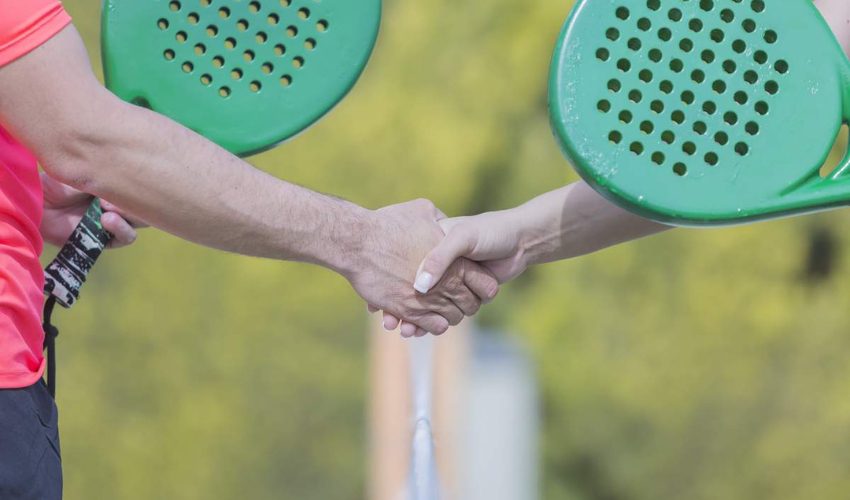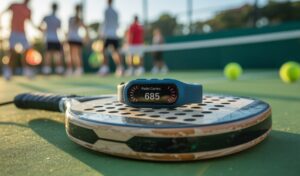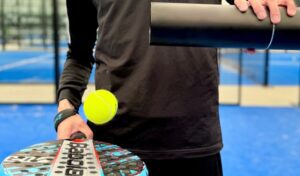I’ll never forget my first padel match. I was so excited to finally try this sport I’d been hearing about everywhere, but I made one crucial mistake – I paired up with someone I’d never played with before. We spent most of the match apologizing to each other, bumping into one another, and generally looking like we’d never held a racket in our lives. That’s when I learned the hard truth: your padel partner can make or break your entire experience.
After three years of playing and countless partnerships (some amazing, some… well, let’s just say they were learning experiences), I’ve figured out what actually works when it comes to finding and keeping a great padel partner. Here’s what I wish someone had told me from the beginning.
Why Your Partner Choice Actually Matters
Look, I used to think padel was just about hitting the ball hard and running around the court. I was so wrong. This sport is like a constant conversation between you and your partner, and if you’re not speaking the same language, things get messy fast.
I remember playing with Sarah, a friend from work who was just starting out. I’m more of an aggressive player – I love going for those risky shots at the net. But Sarah was still learning basic positioning. Instead of complementing each other, we were constantly in each other’s way. She’d hesitate on shots she should take, and I’d overcompensate by trying to cover the entire court. We both left feeling frustrated.
Compare that to my current partnership with Mike. He’s got this incredible defensive game – the guy can return shots that look impossible. Meanwhile, I bring the aggression up front. We’ve learned to trust each other completely. When I see him scrambling to make a difficult return, I know exactly where to position myself because I’ve seen him make that shot a hundred times. That’s the difference a good partnership makes.
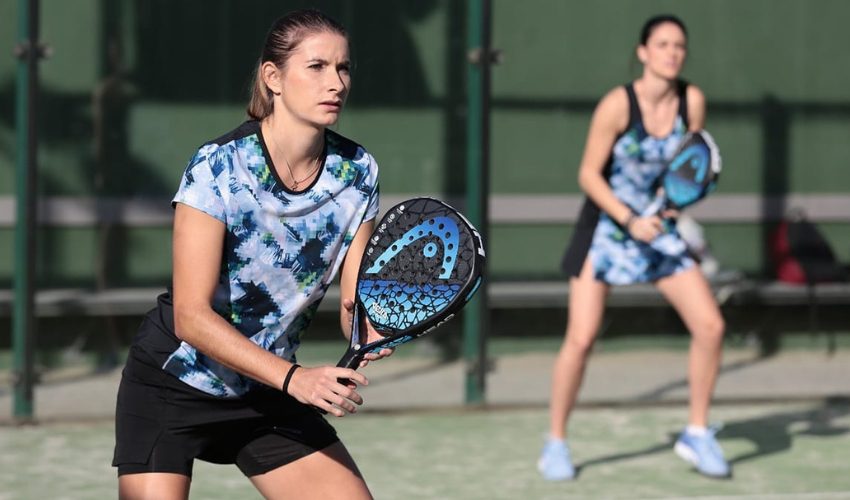
The People You’ll Meet (And What They’re Really Like)
After playing with dozens of different people, I’ve noticed some clear patterns in the types of partners you’ll encounter:
The Overthinker (I used to call them “The Strategist”)
This is usually someone who’s watched way too many professional matches on YouTube. They’ll spend five minutes between points explaining complex strategies while you’re just trying to remember which side of the court you’re supposed to be on. Don’t get me wrong – some of these players are brilliant, but others will drive you crazy with analysis paralysis.
The Crusher
These players think every shot needs to be a winner. They’ll go for impossible angles and try to smash everything, even balls that are clearly going out. Playing with them is exhausting because you’re constantly running around cleaning up their mistakes. But when they’re on? Man, it’s fun to watch.
The Social Butterfly
These are my favorite people to grab a beer with after the match, but during the game? They’re more interested in chatting with players on the next court than focusing on the point. Great for casual play, not so much if you’re trying to win your club tournament.
The Rock
These players might not be flashy, but they’re consistent as hell. They’re the ones who’ll keep the ball in play while you figure out how to win the point. I’ve learned to really appreciate partners like this – they make everyone around them better.
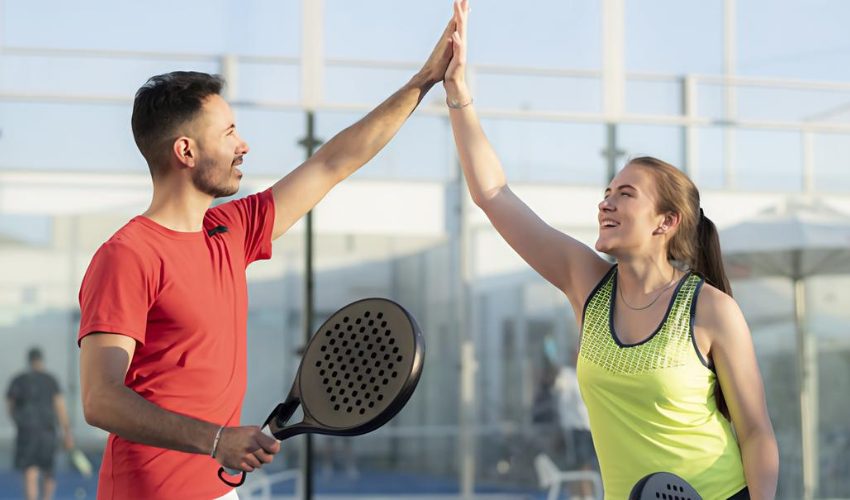
Red Flags I’ve Learned to Spot
After some less-than-ideal partnerships, I’ve developed a radar for potential problems:
The Perfectionist
If someone gets visibly frustrated every time they miss a shot, run. These players will make you feel like every mistake is a personal failure.
The Ghost
You know the type – they’re super enthusiastic about playing regularly, but then cancel last minute constantly or just disappear from your messages.
The Blamer
Everything that goes wrong is either your fault, the court’s fault, or the balls’ fault. Never theirs. Life’s too short for this energy.
The Skill Fibber
We’ve all met players who claim to be at a certain level but are clearly either much better or much worse. It makes for awkward matches and usually doesn’t end well. just with much higher stakes.
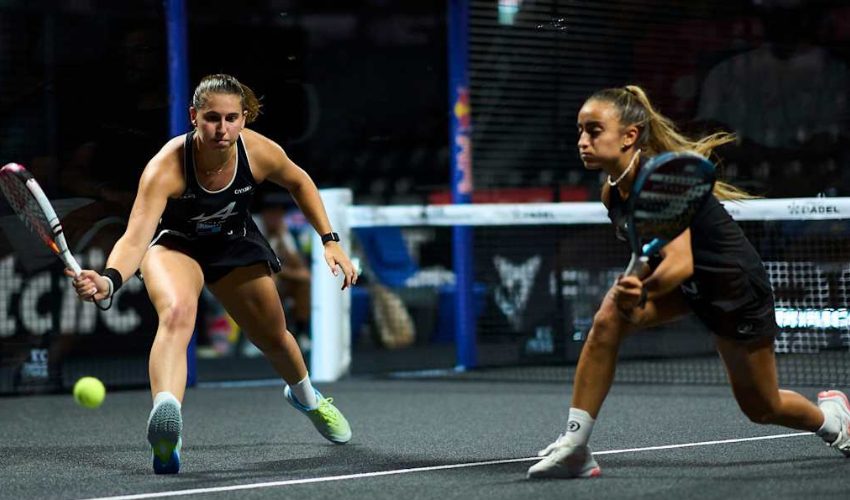
Building Something Real
Finding a partner is just the beginning. The partnerships I treasure most took time to develop. With Mike, it took probably 20 matches before we really clicked. We had to learn each other’s tendencies, figure out our communication style, and most importantly, learn to trust each other’s decisions.
The breakthrough moment came during a tough match when we were down 4-1 in the first set. Instead of panicking or trying to change everything, we just started talking more between points. “I’ve got the lob,” “Take the volley,” “Let’s slow this down.” Simple stuff, but it worked. We won that set 6-4 and never looked back.
The Art of Communication
Communication is the bedrock of any successful partnership. On the padel court, this means:
- Calling shots: Simple calls like “mine,” “yours,” and “out” can prevent confusion and collisions.
- Providing encouragement: A simple “great shot” or “unlucky” can go a long way in keeping morale high.
- Discussing strategy: Talk to your partner between points and games. What’s working? What’s not? What can you do differently?
Developing On-Court Chemistry
The best padel partnerships seem to have an almost telepathic connection. This kind of chemistry is built over time through:
- Practice, Practice, Practice: The more you play together, the better you’ll understand each other’s movements and tendencies.
- Non-Verbal Cues: A simple nod, a hand signal, or even a look can communicate a wealth of information to your partner without alerting your opponents.
- Understanding Playing Styles: Pay attention to your partner’s strengths and weaknesses. Do they have a killer vibora? Are they more comfortable at the net or at the back of the court? Tailor your game to complement their style.
- Establishing Court Responsibilities: While it’s important to be flexible, having a general understanding of who covers which part of the court can prevent confusion and ensure that you’re always in the best possible position.
Handling Disagreements and Tough Matches
Not every match will be a walk in the park. There will be times when you and your partner are out of sync, making mistakes, and facing a tough opponent. How you handle these moments is a true test of your partnership.
- Stay Positive: It’s easy to get down on yourself and your partner when things aren’t going your way. But a negative attitude will only make things worse. Stay positive, offer encouragement, and focus on the next point.
- Don’t Play the Blame Game: Pointing fingers and criticizing your partner will only create tension and resentment. Remember that you’re a team, and you win or lose together.
- Learn from Your Losses: Every loss is an opportunity to learn and grow. After a tough match, take some time to reflect on what went wrong and what you can do to improve.
When Things Get Tough
Not every match is going to be perfect. I’ve had partnerships that started great but fell apart during pressure moments. The key is how you handle adversity together.
Last month, Mike and I were playing in our club championship. We were up 5-2 in the final set, and then completely fell apart. Started making unforced errors, miscommunicating, getting in each other’s way. Instead of getting frustrated with each other, we called a timeout and had a quick laugh about how nervous we both were. That reset helped us refocus and close out the match.
The partnerships that last are the ones where you can be honest about struggles without it becoming personal.
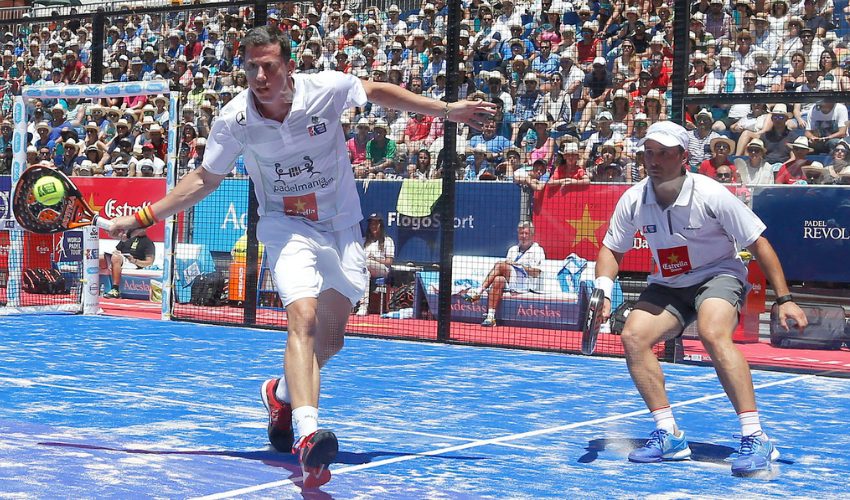
The Professional Side (Because It’s Pretty Cool)
I love following the professional tours, and this year has been wild for partnerships. Watching Agustin Tapia team up with Arturo Coello has been incredible – they play with this intensity that’s just electric. On the women’s side, seeing Gemma Triay and Delfina Brea dominate tournaments has been inspiring.
What I find fascinating is how these pros talk about their partnerships in interviews. They’re always emphasizing trust, communication, and mutual respect – the same things that matter at our level, just with much higher stakes.
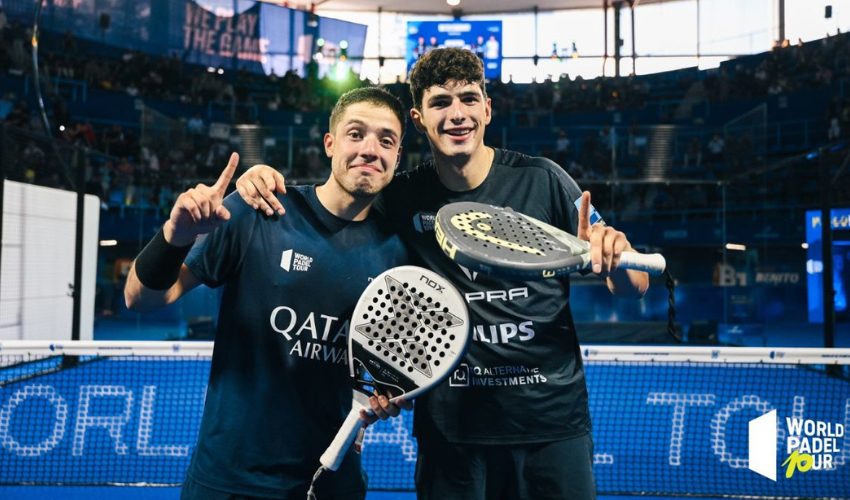
My Advice? Start Playing
Look, I could write another 3,000 words about strategy and technique, but honestly, the best way to find your perfect padel partner is to get out there and start playing with different people. Some partnerships will click immediately, others will take time to develop, and some just won’t work at all. That’s completely normal.
The partnership I have with Mike today is so much better than anything I could have imagined when I started playing. We’ve developed this almost telepathic understanding of each other’s games, and more importantly, we genuinely enjoy spending time together on the court.
So whether you’re brand new to padel or you’ve been playing for years, remember that finding the right partner is just as important as perfecting your backhand. Take your time, be patient, and don’t settle for partnerships that feel forced or frustrating.
Trust me, when you find the right partner, you’ll know. The game becomes more fun, your improvement accelerates, and you’ll actually look forward to every match. Now get out there and start your search – your perfect padel partner is waiting for you.
What’s your experience been with padel partnerships? I’d love to hear your stories – the good, the bad, and the hilarious. Drop me a line and let’s share some war stories from the court.
Do you want to improve your Padel Game Plan? For additional insight of the sport and any Padel advice, keep your eyes peeled at PadelGamePlan.com!
FAQ – PADEL IMPROVEMENT
How to get better at padel?
You will need regular practice, hit on the walls and watch matches of professionals. Read this Article – How to play Padel Tennis.
How can I improve my Service?
For more information on Padel Service, please read the Article – Best Padel Serve Techniques
Can I know more about the Rules of Padel Tennis?
Absolutely, for a beginner-friendly explanation of the Rules of Padel Tennis, please have a look at the Article – Rules of Padel Tennis. For Official Rules, please download the official rules of Internatlonal Padel Federation here.
FAQ – PADEL FOR CHILDREN
At what age should children start Padel Tennis for children?
Children as young as 4 can start out with foam balls and mini-rackets. The majority of clubs are for ages 5–15.
How does padel improve teamwork in kids?
Doubles requires constant communication and mutual strategies; collaboration is natural.
Can padel help academically?
Doubles requires constant communication and mutual strategies; collaboration is natural.
What is a good reason why padel is safer than tennis for little kids?
Enclosed courts, slower balls, and lighter gear reduce injury risks significantly.
Is there any competitive padel opportunity for kids?
Absolutely! Try to look for Junior leagues that offer Padel tournaments for under-12 and teen divisions. the positive impact of padel tennis on children
FAQ – PADEL EQUIPMENT
Do I need special padel tennis attire?
Please read the Article – Top Padel Clothing Essentials.
Do you have a checklist of padel tennis essentials I’ll need?
Could you recommend which padel balls I should use?
Please read the Article – Best Padel Balls.
Planning a Padel Tournament?
Use our Free Tool and get the schedule in seconds.
FAQ – PADEL TENNIS COURT
Is it possible to erect a padel court in my garden?
Installation is possible with a minimum area of 10m × 20m, subject to local zoning approval. For more information, Read this Article.
How much the cost of a padel court?
A typical padel court can range from AED 335,000 to AED 1,113,000, depending on materials, location and amenities. See the full cost breakdown here: Article – How much does it cost to build a padel court.
What about lighting required for the padel court – what advice can you give on that?
Please have a read through on the Article – Essential Padel Lighting Tips.


